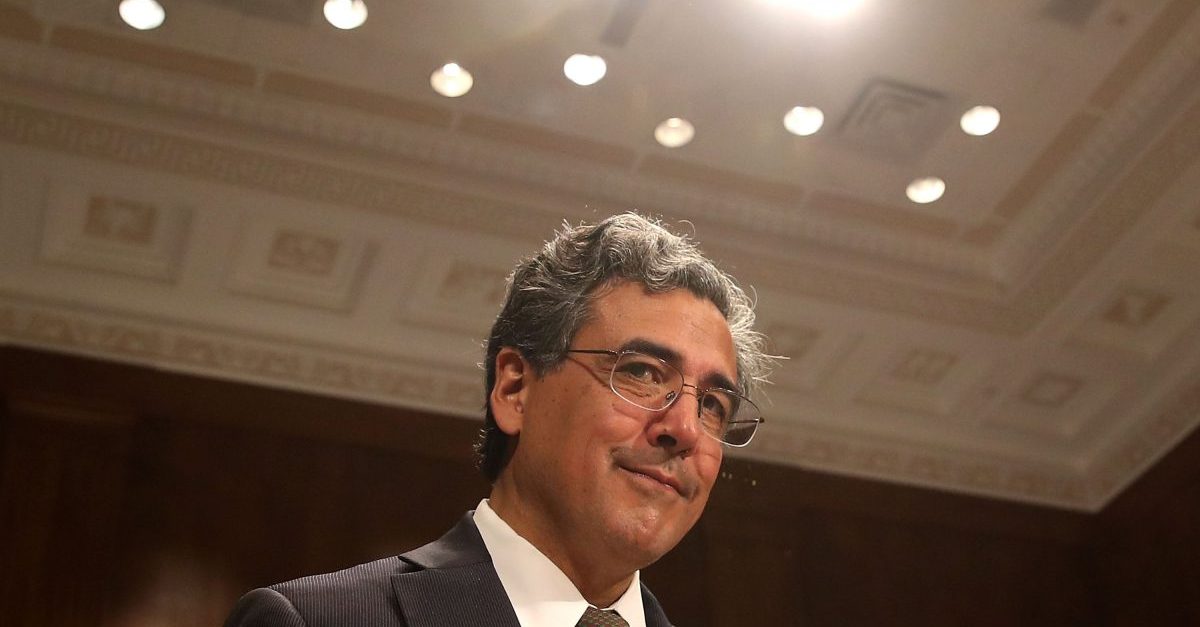
The U.S. Supreme Court rejected the U.S. Solicitor General’s efforts to intervene in a case for the first time in nearly a decade on Monday.
In a civil procedure case stylized as Ford Motor Company v. Bandemer, the auto giant is trying to limit its ability to be sued in states where its vehicles are sold by arguing that the Fourteenth Amendment’s Due Process Clause prohibits such lawsuits.
Ford noted the details in their petition for writ of certiorari:
In 2015, Respondent Adam Bandemer, a Minnesota resident, was the passenger in a 1994 Crown Victoria when the driver “rear-ended a Minnesota county snow plow, and the car ended up in a ditch.” He alleges that the Crown Victoria’s passenger-side airbag did not deploy in the crash, and that he suffered a severe brain injury as a result.Bandemer sued Ford, the driver, and the car’s owner in Minnesota state court. The car’s owner—its fifth—had “registered the vehicle in Minnesota in 2013.” Bandemer raised “products liability, negligence, and breach of warranty claims against Ford and negligence claims” against the other defendants.
Minnesota’s state supreme court ruled in Bandemer’s favor and a similar case in Montana was also decided against Ford. The U.S. Supreme Court rolled both of those controversies into the same case.
“Ford moved to dismiss the claims for lack of personal jurisdiction,” the petition continues. “Ford also explained that it was not subject to specific personal jurisdiction on Bandemer’s claims because Ford had not taken any action in Minnesota that had any causal connection to those claims.”
The Detroit-based automaker’s argument boils down to the fact that the 1994 Crown Victoria in question “was not designed, manufactured, or originally sold in Minnesota.”
Bandemer’s reply brief argued against Ford’s decidedly limited concept of what qualifies as legal contacts sufficient to sustain a lawsuit: “When a manufacturer like Ford deliberately cultivates a state as a market for its cars, a claim that one of those cars has injured a resident in the state is sufficiently related to those contacts to support the exercise of personal jurisdiction.”
In March of this year, Solicitor General Noel Francisco went to bat for the Ford Motor Company, arguing that the Minnesota Supreme Court erred in upholding the exercise of specific jurisdiction.
“A state court may not exercise specific jurisdiction over a manufacturer with respect to a product sold outside the forum State simply because the manufacturer also sells the same type of product within the State or has extensive general connections to the State,” the United States’ amicus brief argued. “That is so even if the product causes injury in the State after the plaintiff or a third party unilaterally brings it there.”
The States of Minnesota and Texas also applied for a stake in the outcome in early April–arguing in favor of Bandemer and plaintiffs’ rights generally. Both motions were denied by the Supreme Court without any reference to the merits of those respective filings.
“The motion of the Solicitor General for leave to participate in oral argument as amicus curiae and for divided argument is denied,” the high court’s order list noted. “The motion of Minnesota, et al. for leave to participate in oral argument as amici curiae and for divided argument is denied.”
Aside from the somewhat strange bedfellow situation of Texas’s arch-conservative Attorney General Ken Paxton (R) arguing alongside Minnesota’s left-progressive Attorney General Keith Ellison (D), the denial marks a rare defeat for the right of the United States to intervene in a high-profile case that will certainly be studied in law schools for years to come.
The last time the solicitor general was told to legally sod off occurred in the 2011 case of Rehberg v. Paulk, which upheld absolute immunity for government officials who lie during grand jury proceedings.
[image via Mark Wilson/Getty Images]